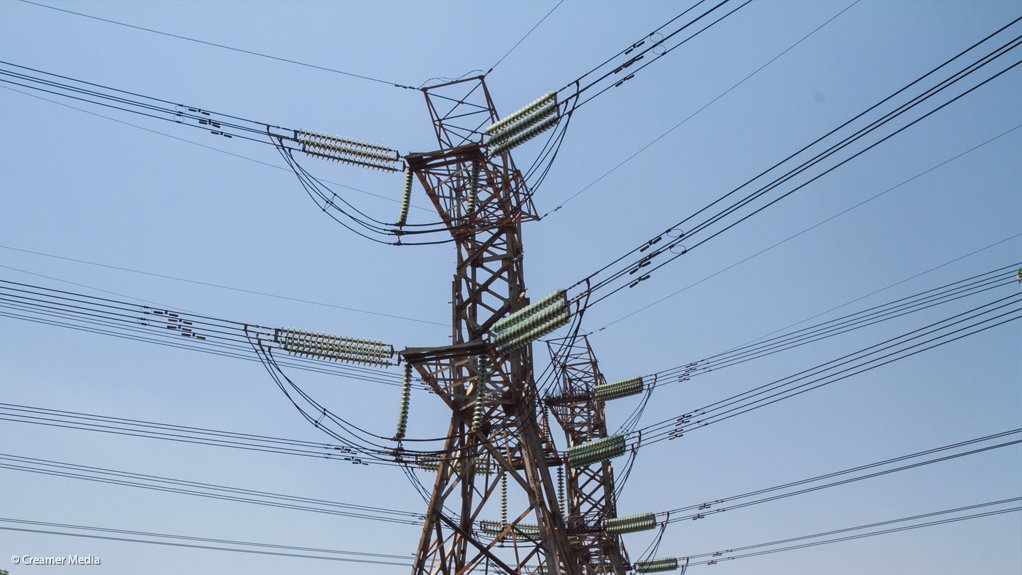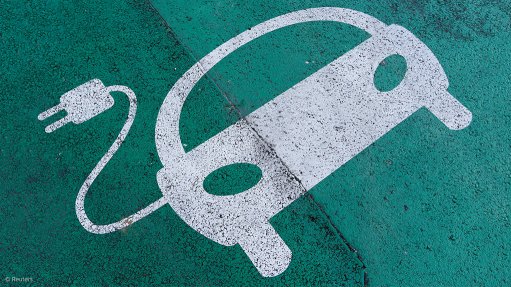Restructuring Eskom ahead of stabilisation would be ‘catastrophic’ – Matona
Eskom is still preparing an input for the Cabinet subcommittee set up to deal with the issue of energy security, but CEO Tshediso Matona revealed this week that the document will call for the stabilisation of the utility to be prioritised ahead of any restructuring proposals.
Speaking following the worst spate of rotational power cuts since 2008, Matona said decisions regarding the “end state” of the State-owned company had become increasingly urgent in light of the current “untenable” situation. However, the immediate priority was to stabilise Eskom financially and operationally, rather than to privatise or break it up.
The former Department of Public Enterprises director-general acknowledged growing calls for privatisation in light of the inability of Eskom to guarantee supply and in light of its difficulties in introducing new capacity on time and on budget.
Three National Planning Commissioners recently met with role-players in the electricity sector where it was agreed that a series of “quiet conversations” were required between public and private stakeholders to unblock obstacles to greater private sector investment in the sector.
Proposals for a far-reaching restructuring of the electricity supply industry were also canvassed, including the possibility of removing the generating business from Eskom and transforming it into a vertically separated national transmission company.
“We think it would be catastrophic, at a time of constrained capacity, [to break up] the only vehicle that is responsible for electricity supply – you would create enormous complications,” Matona said, adding that this position was strongly supported within government, but was not uncontested.
Setting the policy framework remained government’s “prerogative” and internal government processes had been established to seek remedies.
It was not certain, though, whether the Cabinet subcommittee planned to widen the consultations beyond government. For its part Eskom said it was ready and willing to participate in a “national conversation” on the possible short-term and longer-term solutions.
Matona made specific reference to the need for dialogue on the continued use of expensive diesel at the open cycle gas turbines (OCGTs) in the Western Cape, which were being relied on increasingly to keep the lights on.
Eskom had indicated that its diesel budget would again exceed the allocation granted to it by the regulator for 2014/15. Eskom spent a massive R10.5-billion on diesel fuel in 2013/14, which was R8.1-billion above the R2.5-billion set aside by the regulator in its revenue determination for the period. Eskom expected to spend a similar amount in 2014/15, against an approved OCGT cost allocation of only R2.7-billion.
Eskom, which was preparing another Regulatory Clearing Account (RCA) application for submission to the National Energy Regulator of South Africa (Nersa) believes the use of diesel to be “prudent” and, thus, recoverable through tariff adjustments. However, Nersa has to date not agreed with that assessment.
Through the negotiations that led to the financial bail-out announced by Finance Minister Nhlanhla Nene in October, Matona said there was a recognition that the “status quo as it is is untenable – something has to give”.
The “common view” that emerged was also that many of the problems confronting the utility related to past policy indecision, or a failure to execute policy.
“For example, there is already a decision that we have to move to cost-reflective tariffs – it’s a question of implementing that policy decision.”
In other areas, though, there was a need for the policy framework under which Eskom operated “to be clarified.
“The industry is changing, clearly, and my sense is that the future for Eskom is going to be different. But what the end state [will be] is a matter for policy decisions by government.”
Comments
Announcements
What's On
Subscribe to improve your user experience...
Option 1 (equivalent of R125 a month):
Receive a weekly copy of Creamer Media's Engineering News & Mining Weekly magazine
(print copy for those in South Africa and e-magazine for those outside of South Africa)
Receive daily email newsletters
Access to full search results
Access archive of magazine back copies
Access to Projects in Progress
Access to ONE Research Report of your choice in PDF format
Option 2 (equivalent of R375 a month):
All benefits from Option 1
PLUS
Access to Creamer Media's Research Channel Africa for ALL Research Reports, in PDF format, on various industrial and mining sectors
including Electricity; Water; Energy Transition; Hydrogen; Roads, Rail and Ports; Coal; Gold; Platinum; Battery Metals; etc.
Already a subscriber?
Forgotten your password?
Receive weekly copy of Creamer Media's Engineering News & Mining Weekly magazine (print copy for those in South Africa and e-magazine for those outside of South Africa)
➕
Recieve daily email newsletters
➕
Access to full search results
➕
Access archive of magazine back copies
➕
Access to Projects in Progress
➕
Access to ONE Research Report of your choice in PDF format
RESEARCH CHANNEL AFRICA
R4500 (equivalent of R375 a month)
SUBSCRIBEAll benefits from Option 1
➕
Access to Creamer Media's Research Channel Africa for ALL Research Reports on various industrial and mining sectors, in PDF format, including on:
Electricity
➕
Water
➕
Energy Transition
➕
Hydrogen
➕
Roads, Rail and Ports
➕
Coal
➕
Gold
➕
Platinum
➕
Battery Metals
➕
etc.
Receive all benefits from Option 1 or Option 2 delivered to numerous people at your company
➕
Multiple User names and Passwords for simultaneous log-ins
➕
Intranet integration access to all in your organisation





















